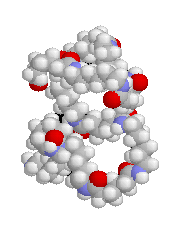Harnessing the Power of Polymers: Understanding the Comprehensive Usages and Favorable Impacts
Polymers, with their diverse chemical structures and residential properties, have actually come to be important in various industries, reinventing the method we interact with materials on a daily basis. From the product packaging that safeguards our food to the fibers that clothe us, the applications of polymers are large and differed. Past their common presence lies a much deeper understanding of their favorable effects, getting to far past simple comfort. As we discover the considerable uses polymers and their role fit an extra lasting, effective, and ingenious future, it becomes noticeable that their capacity is as large as the particles themselves.
Flexibility in Everyday Products
One of the most common uses of polymers is in packaging materials. Furthermore, polymers play an essential role in the automobile market, where they are made use of in manufacturing lightweight components that improve fuel effectiveness.
Eco-friendly polymers are used in stitches and implants, reducing the risk of unfavorable responses in clients. In the building market, polymers are included into paints, adhesives, and insulation materials, improving toughness and power effectiveness.
Sustainability in Material Innovations
With the ongoing emphasis on ecological awareness and source effectiveness, the emphasis shifts towards sustainability in material technologies, reflecting an expanding commitment to liable manufacturing methods throughout numerous sectors. In the last few years, there has been a noteworthy rise in the advancement of lasting materials, specifically within the realm of polymers. These innovative products are created to reduce ecological influence throughout their whole lifecycle-- from sourcing basic materials to disposal or recycling.
One significant aspect of sustainability in product innovations is the idea of biodegradability. Biodegradable polymers have amassed interest for their capability to break down normally into safe byproducts, reducing waste and air pollution. Furthermore, using recycled polymers originated from post-consumer or post-industrial resources is gaining grip as a way of advertising a circular economic climate and reducing reliance on virgin materials.

Enhancing Efficiency in Engineering
Enhancing efficiency in engineering needs a precise assimilation of advanced modern technologies and specific methodologies to enhance functionality and effectiveness in numerous commercial applications. Polymers play a crucial duty in this undertaking, supplying a vast variety of advantages that improve the efficiency of engineering materials and parts.
One key facet of improving performance in engineering is the capacity of polymers to improve resilience and strength. By including polymers into design layouts, producers can create light-weight yet robust structures that can endure high levels of anxiety and stress. This characteristic is specifically beneficial in sectors such as aerospace, automobile, and building, where the need for strong yet lightweight materials is critical.
In addition, polymers can additionally boost efficiency by giving thermal and chemical resistance, decreasing rubbing, and enhancing electric conductivity. These properties make polymers perfect for a variety of design applications, consisting of seals, bearings, coatings, and digital parts. Polymers. By utilizing the one-of-a-kind homes of polymers, designers can maximize the performance of their styles and develop read this post here more effective and trustworthy products
Influence On Clinical Developments
The combination of innovative polymer modern technologies has actually dramatically added to advanced innovations in the medical area. Polymers have actually played an essential duty in modern clinical advancements, ranging from drug delivery systems to cells design. Among the essential locations where polymers have actually made a significant impact remains in the development of eco-friendly sutures and implants. These polymers can be tailored to break down at a certain price, enabling much better wound recovery and minimizing the need for additional surgical procedures to eliminate implants.
Moreover, polymer-based products are increasingly being used in clinical devices such as catheters, stents, and prosthetics as a result of their biocompatibility and convenience. For example, polymer finishings on medical devices can stop infections and enhance overall person results. Furthermore, innovations in nanomedicine have made it possible for making use of polymer nanoparticles for targeted medication distribution, boosting the efficacy and minimizing adverse effects of numerous medications
Duty in Environmental Conservation

Moreover, polymers are utilized in water treatment procedures, helping in the purification and recycling of water resources. This assists in reducing water contamination and guaranteeing access to clean water for both human intake and environmental health. Polymers additionally play a function in agriculture with find here the development of naturally click resources degradable mulches and controlled-release fertilizers, promoting lasting farming techniques.
Verdict
In conclusion, polymers have actually shown to be a flexible and vital material in numerous sectors, from day-to-day products to design and medical developments. Their effect on sustainability, performance improvement, and environmental preservation is considerable. Recognizing the comprehensive uses of polymers emphasizes their significance in driving advancement and progression in numerous fields. The ongoing exploration and usage of polymers will certainly cause additional advancements and positive influence on culture.